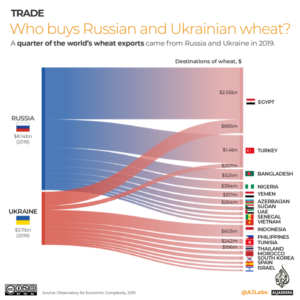India’s latest elections have heralded a significant shift in its political landscape, as voters have decisively pushed back against the concentrated power and ethno-nationalist sentiments championed by the ruling Bharatiya Janata Party (BJP). This shift serves as a stark indictment of Prime Minister Narendra Modi’s leadership, revealing the failures and consequences of his hardline policies. Modi’s declining popularity is not just a personal setback but an indicator of broader systemic issues within India, reflecting his Administration’s failures on multiple fronts, including its handling of foreign relations with neighboring countries.
The recent elections have also marked a return to coalition governance, reminiscent of the political era from 1989 to 2014. During that period, diverse alliances fostered significant economic reforms that propelled India to become one of the world’s largest economies. The resurgence of coalition politics indicates a clear rejection of Modi’s centralized power and ethno-nationalist agenda, as voters seek a more balanced and inclusive approach to governance. This political shift underscores the electorate’s dissatisfaction with Modi’s authoritarian style, which has stifled democratic norms and led to increased polarization.
Deteriorating Sino-Indian Relations
Under Modi’s leadership, India’s relationship with China has deteriorated significantly. Border clashes, particularly the 2020 Galwan Valley incident, have heightened tensions between the two countries. Modi’s hardline stance and confrontational policies have failed to address these issues effectively, leading to a precarious situation along the Line of Actual Control (LAC). The LAC, a loosely defined ceasefire line, has become a flashpoint for conflict, exacerbating the already strained relationship.
Modi’s approach has not only failed to de-escalate tensions but has also pushed India into a closer alignment with the United States, further complicating its geopolitical standing. This pivot towards the US reflects a reactionary policy rather than a strategic vision, highlighting Modi’s inability to navigate complex international dynamics. The result is a more isolated India, struggling to assert itself amidst regional power plays.
Economic Missteps and Dependencies
Modi’s Economic policies have also come under tight scrutiny, particularly in the context of India’s reliance on China. Despite the “Make in India” initiative aimed at reducing dependency on Chinese imports, the reality has been less than successful. The economic fallout from strained Sino-Indian relations has been severe, with significant losses in production and jobs. India’s electronics manufacturers, for instance, have lost an estimated US $15 billion in production and 100,000 jobs over the past four years due to these tensions. This economic decline is a direct consequence of Modi’s inability to manage the balance between national security and economic interests.
The failure to effectively implement economic reforms and reduce dependency on Chinese imports underscores the shortcomings of Modi’s economic strategies. These missteps have left India vulnerable, with limited leverage in its trade and diplomatic negotiations. The economic strain exacerbates domestic discontent, further eroding Modi’s support base.
India is deeply reliant on China for provision of critical products like Telecom, Smart phones, Pharma and advanced technological products. An interesting fact is that despite military confrontation at Ladakh for last four years, China has been the biggest trading partner of India with bilateral trade at US $118.4B and grossly in favour of China.
Internal Discontent and Polarization
Domestically, Modi’s policies have led to increased polarization and social unrest. His Administration’s ethno-nationalist rhetoric has alienated minority communities and intensified communal tensions. Views against Pakistan has been an important context in Modi’s political rhetoric. Same has been the case of Muslims living in India, who have been badly marginalized. The rise in hate crimes and social divisiveness is a testament to the detrimental impact of Modi’s leadership on India’s social fabric. The electorate’s pushback against the BJP in the recent elections reflects a broader disillusionment with Modi’s divisive policies and his failure to address key social and economic issues.
Thus, the election results and the resurgence of coalition governance signal a clear rejection of Narendra Modi’s hardline policies. The strained relationships with neighboring countries, particularly China, underscore the failures of Modi’s confrontational approach. Domestically, the rise in polarization and social unrest further highlights the detrimental impact of his leadership.
Modi’s declining popularity is a reflection of the broader systemic issues within India, as his administration’s policies have failed to deliver on economic, social, and diplomatic fronts. The future of India’s political and economic landscape will depend on its ability to address these challenges effectively, fostering stability and growth in an increasingly interconnected world. As India navigates this complex landscape, it must prioritize pragmatic and inclusive governance, moving away from the divisive and authoritarian policies that have characterized Modi’s tenure.
Sehr Rushmeen, an Islamabad based freelance researcher, did her MPhil from National Defence University (NDU) in Strategic Studies, and her BSc from University of London (UOL) in International Relations. Her area of research interest is Strategic Nuclear Studies, Artificial Intelligence in Warfare, South China Sea and South Asian Politics. She tweets as @rushmeentweets and can be reached on sehrrushmeenwrites@gmail.com.




